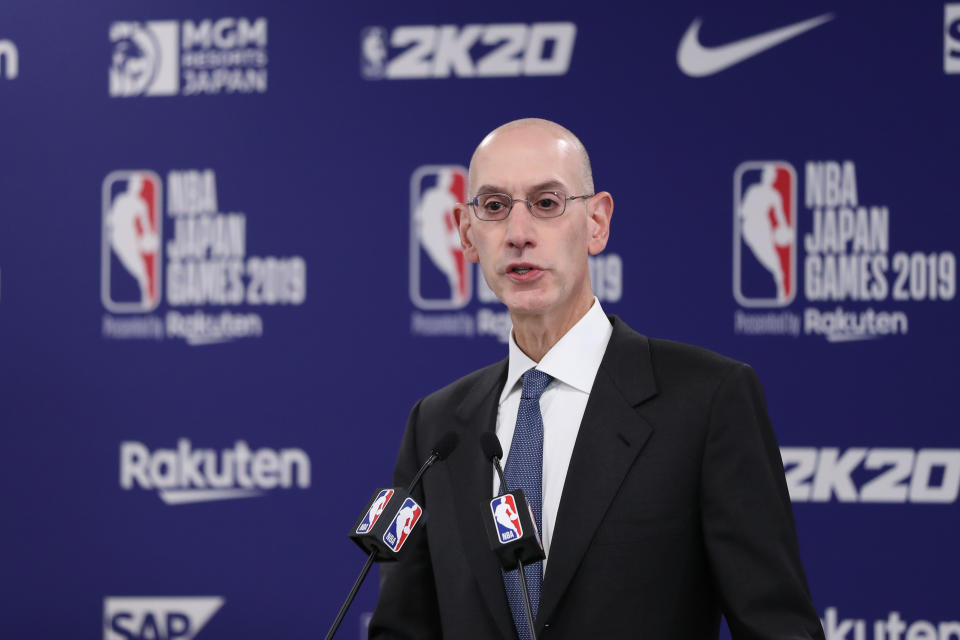Report: NBA salary cap, luxury tax expected to drop from projections for 2020-2021 due to lower revenue
As the NBA trade deadline approaches, teams may have to start thinking about next season before they make any franchise-altering moves.
According to ESPN’s Adrian Wojnarowski and Bobby Marks, the NBA will soon release adjusted 2020-21 salary cap and luxury tax projections, which signal a drop in those projected figures due to decreased revenue for the league. The original cap projection was $116 million, but it could reportedly drop down to $113 million.
The likely culprit of the decrease in revenue is the NBA’s kerfuffle with China back. China pulled television coverage and sponsorships in October after Houston Rockets GM Daryl Morey tweeted in support of Hong Kong independence. China had been a major source of revenue for the NBA, and Wojnarowski and Marks reported that the Morey tweet and ensuing issues cost the NBA between $150 million and $200 million.
Even with the loss of revenue from China and the resulting $3 million decline in the projected cap, Wojnarowski reported that overall NBA revenue is up. That’s why the 2020-21 cap is still expected to exceed this year’s cap of $109.1 million.

The reported $3 million decrease in the cap isn’t enough to significantly affect the upcoming trade deadline, because only a handful of teams have enough cap space to make big moves. That $3 million looms a lot larger when you look at the big picture beyond this season. If the $141 million luxury tax level drops to $138 million as ESPN reports, teams like the Golden State Warriors and Los Angeles Lakers would be in some trouble.
The Warriors, who are already in line for a $65 million luxury tax penalty, could see that balloon to $80 million if the tax level drops by $3 million. The Lakers could use their $9.8 million midlevel exception to make a move this summer, but then they risk getting hard capped and limiting their flexibility next season due to the reduction.
Teams like the Rockets and Philadelphia 76ers also need to pay attention, because they’re expected to be luxury tax teams in 2020-21. Players who signed rookie-scale contract extensions, like Pascal Siakam and Ben Simmons, are also likely to be affected. Their salaries are determined by percentages of the salary cap, and a lower cap means a lower salary.
More from Yahoo Sports:
